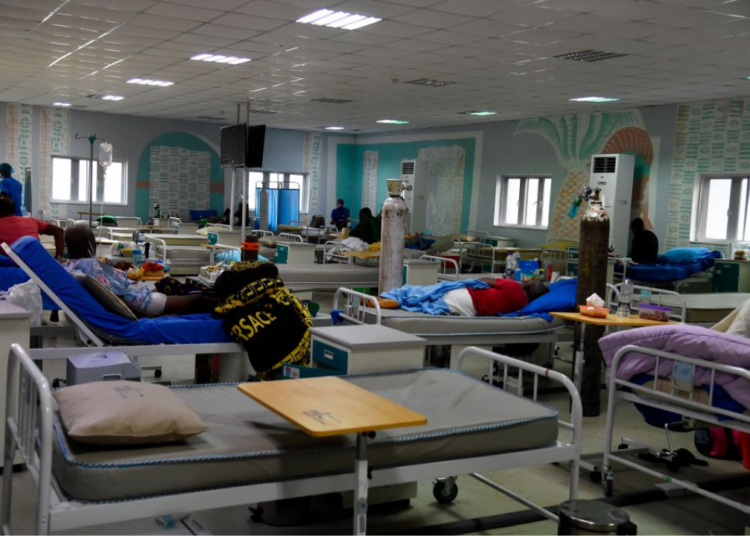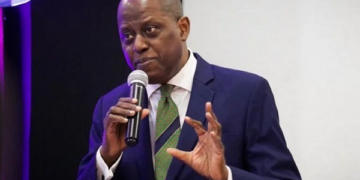While industrial disharmony has become a common practice in Nigeria, especially in the health sector, indigent patients who cannot afford healthcare services in private hospitals or travel abroad for medication are the ones bearing the brunt.
Many families have lost loved ones due to health workers’ strike in the country. Some ended up with complications from disruption in their routines due to doctors’ strikes.
A motorcycle rider in one of the suburbs in Abuja, Mr. Clement Godiya, narrated the sad experience of losing his pregnant wife during one of the strikes by the National Association of Resident Doctors (NARD) in 2021.
Godiya, who was still in tears while narrating the ordeal after two years, said his late wife, Asabe, was pregnant and was feeling sick. According to him, she was taken to a primary healthcare center where she was referred to a general hospital for further examination. Unfortunately, Godiya said on arriving at one of the general hospitals in Abuja, the nurses attended to her and said there was no doctor around but asked them to come back very early the next day to see a consultant.
Godiya, in tears, said his wife started bleeding heavily at night and she died before the next morning.
Late Mrs Godiya is just one of the many victims of the doctors’ strike in the country. If only the family was financially buoyant, Asabe would have been taken to a private hospital and probably could have been alive today, but sadly, she died, with no one to hold responsible.
Whereas the reasons behind incessant strikes in the sector may be justified, the common man on the street bears the loss, considering its implication on more than 50 per cent of Nigerians who are living below $1 per day.
The most vulnerable people in this situation are pregnant women, people with chronic ailments, and parents of under-five children.
Recall that NARD had embarked on a nationwide indefinite strike on September 7th, 2020, and the strike was suspended on September 11.
Three days after, the Joint Health Sector Unions (JOHESU) commenced its nationwide strike in all federal health institutions.
NARD, again on January 2021, gave the federal government till the 31st of March to meet its demands after which it brought its threat to action by embarking on a nationwide strike on April 1st. The strike was suspended after 10 days after it reached an agreement with the government in the Memorandum of Actions (MOA) signed at the instance of the Minister of Labour, Dr Chris Ngige.
On August 2nd, just less than four months, the doctors embarked on strike again. While the strike was on, general hospitals in the FCT and other parts of the country were rejecting and discharging patients, except those in critical conditions who were still being attended to by consultants and house officers.
Just as Nigerians were beginning to breathe a sigh of relief, NARD began a five-day warning strike from 8 am on Wednesday, May 17 to 8 am Monday, May 22, to press on its demands from the government.
During a visit to some public hospitals in the Federal Capital Territory (FCT), it was observed that outpatients were not attended to due to the warning strike.
At the Nyanya General Hospital in Abuja at about 9 am on Wednesday, some patients were seen leaving the hospital premises even though skeletal services were going on.
One of the patients, Martins Osai, expressed his disappointment over the warning strike, saying he was not aware of it.
Osai said he was told by the nurses that there was no doctor to attend to him and that he should come back by Monday next week when the five-day warning strike would have ended.
“I was so disappointed this morning when a nurse told me that resident doctors had embarked on a nationwide strike. I have not been feeling well but I will wait till next week because I don’t have money to go to a private hospital,” he lamented.
At the Asokoro District Hospital, Abuja, doctors on housemanship were attending to patients while emergency cases were referred to consultants.
Some of the outpatients were seen looking confused as they were asked to return by Monday. One of them, Gbenga Adeyemi, said he had an appointment to see a specialist on Wednesday but due to the strike, he wasn’t attended to, even though the strike does not involve specialists.
However, a former head of clinical services in the hospital, Dr. Chidi Nnabuchi said the hospital would operate based on available capacity, saying “Emergency care would be offered where necessary.”
Resident doctors had on April 29, 2023, issued a two-week ultimatum to the federal government to meet their demands or face industrial action. The ultimatum ended on Saturday, May 13, 2023.
NARD president, Dr. Emeka Innocent Orji, had told LEADERSHIP that if the government fails to respond to the issues after the five-day warning strike, they will have no choice but to embark on an indefinite strike.
He said, “The update from the meeting is that our members all over the country have given us the mandate to declare a total strike. The strike is starting from Wednesday this week for five days, after which we will review the situation. And if the government is yet to respond to all the issues that we have enumerated, of course, no one will blame us if we then come up with an indefinite strike action.”
The doctors are demanding immediate payment of the 2023 Medical Residency Training Fund (MRTF) as well as payment of all their salary arrears. 200 percent salary increment in addition to the new allowances included in the letter they wrote to the Minister of Health on the 7th of July 2022 for the review of CONMESS.
NARD is also demanded immediate implementation of CONMESS, domestication of MRTA, and review of hazard allowance by all the state governments as well as private tertiary health institutions where any form of residency training is done.
However, the Federal Ministry of Health said they were working with other relevant ministries to ensure the industrial dispute is resolved.
The director of public health at the ministry, Dr Morenike Alex-Okoh, who disclosed this at a press briefing, in Abuja, said “As usual, the leadership of the ministry will be engaging the ministry of labour and relevant stakeholders and the resident doctors to resolve whatever the issues are and we hope these issues will be resolved.
Meanwhile, as the call for the government to find a lasting solution to the problem heightens, doctors blame incessant strikes in the country on the government.
We’ve got the edge. Get real-time reports, breaking scoops, and exclusive angles delivered straight to your phone. Don’t settle for stale news. Join LEADERSHIP NEWS on WhatsApp for 24/7 updates →
Join Our WhatsApp Channel










